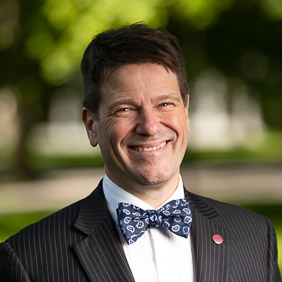Keynote Speakers

Arnold Pears
KTH Royal Institute of Technology, Sweden
Title: Computational Thinking, “Fad” or “Fundamental”?
Abstract:
Computational thinking purports to be the foundation of thought for coming generations, an indispensable skill-set that compulsory education must provide.The education community at all levels world-wide has embraced this message, and there are frenetic efforts to develop educational models, instructional designs and new pedagogies with which to introduce and hone such skills across all levels from pre-schooling to university education.
A fundamental question for all educators, however, is what are the skills that are ultimately unique for computational thinking?
In reflecting on this question one should be aware that the basic ideas of computation are not new. The notion of using “computers” to perform routine operations in order to solve large scale numerical problems pre-dates the notion or automating the process with machinery. Early examples of “computers” can be found in the history of the navigation tables of Great Britain, and in the collections of logarithms, sines and cosines and other mathematical reference tables long used as an aid in lengthy calculations requiring numerical solutions.
These early “computers” were often clergy or other mathematically proficient and reliable persons, and the impact of their collaboration around the systematic compilation of navigational and other types of mathematical table cannot be underestimated(Robson & Stedall, 2008). However, the process was fraught with error. Individuals made mistakes, and it was not uncommon for a comparator to either receive two erroneous computations to compare, or to make a mistake in either the comparison or transcription. Thus emerged an urgent priority, to mechanise (automate) these computations to eliminate the element of human fallibility.
Is Computational Thinking a fad? Much of what has been described as computational thinking is also present in the discourse of Physics and Mathematics. Abstraction is not unique to computing, nor is logical or critical thinking, both of which stem from earlier philosophical traditions. Recognising patterns in both geometric and mathematical representations (See §28 and Figure 1 in the paper) has long been the basis of western spatial ability and IQ tests (Buckley, 2018). Flow optimisation in a cafeteria, the classic example offered by Wing, is a clear example of the application of techniques first used in time and motion studies for process optimisation (Adams & Toromanoff, 2016).
What then is Computational Thinking? It is not clear that programming skills equip people to operate effectively as informed citizens in the increasingly technological environment typical of developed societies worldwide. Quite different skills are required to assess if it is feasible that the world will make a transition to self-driving electric vehicles within the next 20 years, or to reason about the implications of inference algorithms applied to large data sets which lay the foundation for Google Translate, or social media feed recommender systems.
It can indeed be argued that programming is not a useful skill at all for future generations. Programming is increasingly being automated as a process with figures like Tesla’s Andrej Karpathi blazing a new trail (Karpathy, 2018). This type of approach may provide the impetus for the next industrial revolution, in which most programmers will likely be rendered obsolete, as were their forebears the expert weavers by the advent of the knitting and weaving machines. In this context what habits of mind remain from the list above that clearly can be identified as Computational Thinking as distinct from Physics Thinking, Mathematical Thinking, Logical Thinking, or Programming Terminology?
In this talk we will explore the entecedents and context of ComputationalThinking with the goal of stimulating debate on the nature and role of Computational thinking for education and educators.

Alexei Semenov
The director of Axel Berg Institute of Cybernetics and Educational Computing, Moscow
Title: Computational thinking. The Russian experience and global prospects
Origins for the concept of computational thinking and its implementation in education are multiple in Russia. Among others are: constructivism in mathematics (Andrei Markov, 1940-s), coding as a school subject in schools specialized in (Semyon Shvartsburd 1961), “Programming as Second Literacy” (Andrei Ershov, 1981). In 1985 Russian Government issued a Resolution “On Measures to Ensure Computer Literacy of Secondary School Students and the Widespread Introduction of Electronic Computers in Educational Process». Russian mathematicians produced a computer science and technology course for all schools in the country. The environment for coding in the course was a structural programming acting in visualized environments (Robot in Maze – as the main). The course was a balanced combination of aspects and components associated today with Computational Thinking.
The further development was diversified. The stream, which we discuss in more detail, is based on the Russian tradition of mathematics education for highly motivated students. In this tradition, the student constantly solves problems of high personal novelty: s(h)e creates math. Feedback plays significant role, not evaluation only. This tradition serves as the basis for the mathematics and computer science course in elementary school, based on working with visual and linguistic objects common to mathematics and computer science, without the dominance of number. Our development was enforced by constructionist wind brought into the country by Seymour Papert in the late 1980’s. In 2009 The Russian Federation has adopted the Federal Standard for Primary Education in which math was integrated with computer science. The educational outcomes of the integrated subject plus metacognitive results embrace computational thinking.
The talk will outline our approach and consider perspectives for the digital learning and computational thinking in 21st century.

Charoula Angeli
University of Cyprus
Title: What to Teach in Computer Science and How to Teach It
Adding computer science as a separate school subject to the core K-12 curriculum is a complex issue that involves many legislative, administrative, political, and educational challenges. The latter will be the focal point of this talk. In particular, there are two major educational challenges related to: (a) what computer science content to teach across different educational levels, and (b) what body of knowledge do teachers need to have to be able to teach the computer science curriculum.
Over the years, a variety of computer science curricula, representing different views about what is important to teach in computer science and when, have been proposed in the literature and or enacted in different countries, such as UK, USA, Austria, Germany, Israel, Greece, Cyprus, and recently Australia. While, during the last two decades, a lot of work has been done by the computer science education community in promoting computer science as a school subject in secondary education, not a lot of work has been done regarding the integration of computer science in the elementary school curriculum (grades K-6, approximately from 6 to 12 years old). Despite the fact that a number of computer science education researchers have written about their concerns in regards to teaching computer science in K-6 because of learners’ very young age, recently, there has been much impetus in bringing computer science experiences to elementary school children. Clearly, early computing education is now at the forefront, and, studies toward this line of research are urgently needed in order to develop an informed body of knowledge about learning and teaching computer science starting from elementary education. Accordingly, in this talk, we will explore the prospects of a curriculum framework with a focus on promoting computational thinking skills for the age of 6 and above, before covering more theoretical and applied concepts of computer science in secondary education.
Specifically, in this talk we will address the following two questions: (a) what computational thinking skills should a computer science curriculum promote, and (b) what knowledge do teachers need to have to be able to teach computer science. The first issue will be discussed from the perspective of designing an authentic computational thinking curriculum with a focus on real-world problems. The second issue will be addressed within the framework of Technological Pedagogical Content Knowledge (TPCK), and, it will be argued that TPCK is an important body of knowledge for the field of computer science, because technology is at the center of the computer science domain, either, as a means in itself, or as a means for achieving or teaching something else.
